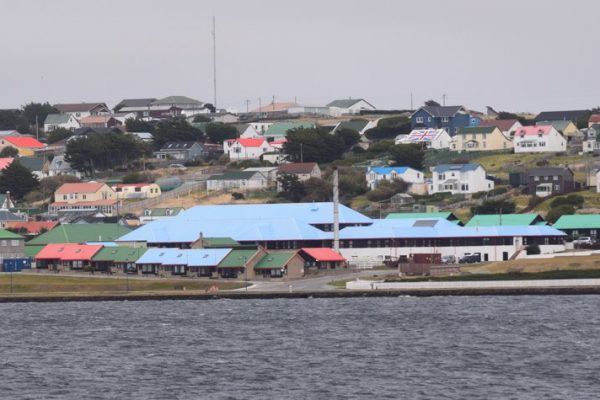THE King Edward Memorial Hospital in the Falkland Islands will undergo an in-depth inspection in November, its first for over a decade. “In theory, you should never go that long without an inspection,” said Director of Health and Social Services, John Woollacott. “Even though there is no statutory or legal requirement for us to have inspections here, we don’t have the regulatory environment like that, it is still the right thing to do.”
In 2019/2020 there were a number of condition reports that were commissioned which looked at the infrastructure of the hospital, to help inform the redevelopment of the building, not the quality of the clinical service. The MOD have also conducted assurance inspections.
“An inspection should be a useful tool,” said Mr Woolacott. “It recognises what you are doing well, so you can keep doing it well, and where are your weaknesses and how you might address those.” Mr Woolacott also said that they had received mixed feedback from staff about the inspection “Some staff are definitely welcoming it, some staff are perhaps a bit hesitant, although I think I need to give them more information about why we’re doing it. It’s not to be used as a punitive measure against staff; that’s really not the intention,” continued Mr Woolacott. “It’s to hopefully improve the service for everyone.”
The independent inspection team will arrive in mid-November led by Professor Ian Cummings, Ambassador for Healthcare in the Overseas Territories. Other members of the team are expected to include a Healthcare Governance expert, a Chief Executive of a UK NHS Trust, and a consultant-level nurse. The nature of the inspection will be observing processes as well as addressing 5 key questions: Is it safe? Is it effective? Is it caring? Is it responsive to people’s needs? And, is it well-led? The inspection will look at lots of different strands within each area compiling evidence on every aspect of clinical care.
“Public engagement is important,” said Mr Woolacott. “We are a public-facing service provider, so what the public think and what their experiences are, are completely valid for the inspectors to help them form an overview of the quality of the service that we are delivering and what the perception of it is.”There will also be the opportunity for patients to give general feedback on their experiences at the KEMH.
The completed report will be a publicly available document, but questions have been raised as to whether that would be the whole of the report or whether there would be parts redacted. “I think there will be two versions of the report,” said Mr Woolacott. “For the public document, they might want to amend some of the very technical jargon. It is not my intention that we will have redactions, but there might be something that is really sensitive that they want to put in, which just wouldn’t be appropriate.”
Concerns over data handling at KEMH have previously been the focus of two court cases, but this is not a primary focus for the inspection. “It will be a focus,” said Mr Woolacott. “I don’t want this to be conflated as an investigation into data handling. Data handling is absolutely some of the key lines of enquiry asked under the ‘is it well-led?’ section.”
The regulatory framework in the Falklands differs from the UK, but Mr Woolacott wants to make the inspections, as far as possible, comparable. “We want to try and keep it consistent with a known framework of inspection, and data handling is already part of that and there are already defining questions that they would ask.”















